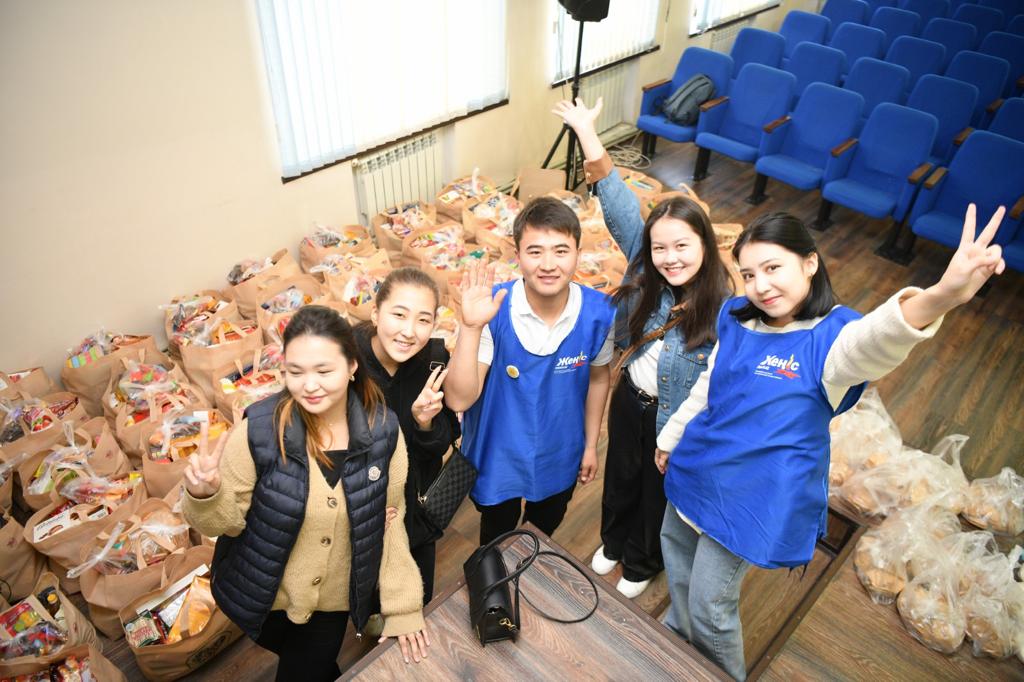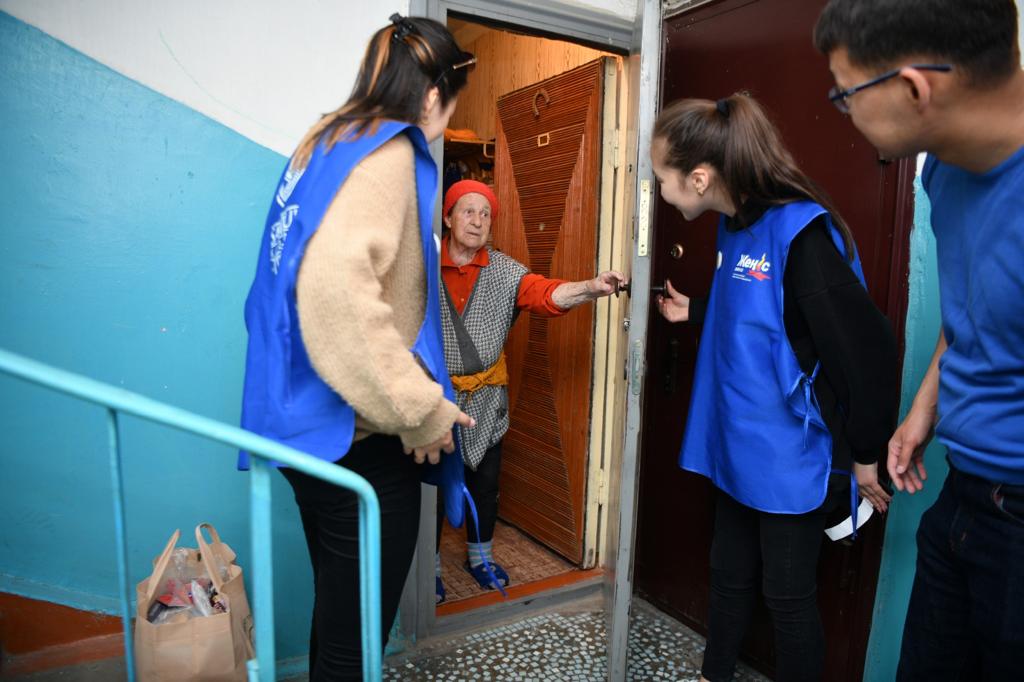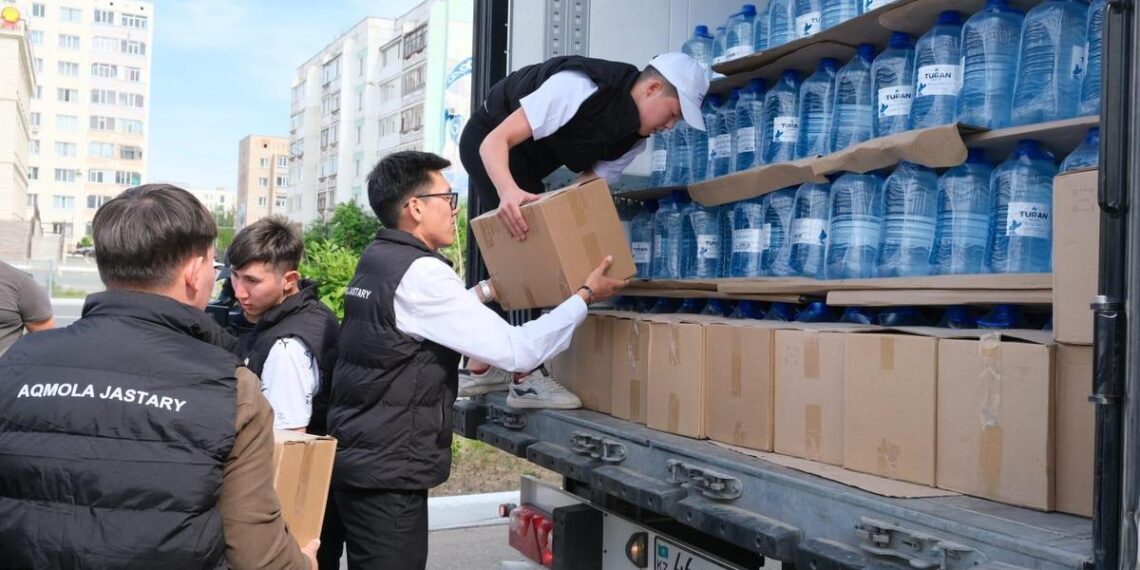ASTANA – Kazakhstan observes World Humanitarian Day on Aug. 19, a time to acknowledge and honor the dedicated individuals who tirelessly extend aid to those in need, particularly during crisis and conflict.

Photo credit: The National Volunteer Networks’ archive.
According to Tatiana Mironyuk, executive director at the National Volunteer Network, the date serves as an opportunity to contemplate the significance of unity, empathy, and compassion in our world while encouraging everyone to support humanitarian endeavors and lend a hand to those requiring assistance.
“The day also serves as a reminder that all people have a role to play in alleviating human suffering and working towards a more inclusive and compassionate world,” she said.
She highlighted the Zhenis project, which operates throughout the year to provide social support for Second World War veterans with the active participation of volunteers.
“A total of 525 people are engaged in volunteer activities, offering aid to nearly 1,400 veterans and home front workers categorized as socially vulnerable. We also organized around 70 significant events involving these veterans and home front workers,” said Mironyuk.

Humanitarian assistance provided to veterans through the Zhenis project. Photo credit: The National Volunteer Networks’ archive.
Volunteer assistance during emergencies is pivotal. During the fire outbreak in the Abai Region, volunteers offered guidance, raised funds and provided on-site support.
“Volunteers were involved in food delivery, packaging, cooking, and bringing the supplies and funds. Many caring individuals and organizations reached out to assist the affected population, including representatives from the business sector, banks, and non-government organizations. We consistently share reports about humanitarian aid on our social media platforms, ensuring transparency in how funds are utilized,” she said.
Alisher Assylbekov, the media officer of the Red Crescent of Kazakhstan, noted that their organization undertakes a wide array of tasks to prevent emergencies and offer humanitarian assistance in the face of natural or technological disasters. They also engage in social service, healthcare, reuniting families, and supporting refugees and migrants.
“All humanitarian assistance can be divided into two types. The first includes standard aid like food, bedding, hygiene products, and other essential items,” he said.
This aid is typically delivered to affected people at evacuation points, where emergency service representatives relocate them during extensive evacuations.
“The second form of humanitarian assistance involves cash voucher aid. In collaboration with our partners, we distribute bank cards to affected families with a specific sum of money, which they use for immediate necessities. This type of assistance has proven its efficacy, particularly during periods of significant emergencies when humanitarian support pours in from across the nation,” he said.

Humanitarian aid to the Abai Region. Photo credit: ehonews.kz.
Delivering aid through a cash voucher system empowers recipients to allocate these funds toward their current needs, including obtaining medication, reclaiming property, or other essentials. The monetary voucher system prohibits using these funds for purchasing tobacco or alcohol products.
Assylbekov said the Red Crescent is a non-governmental entity funded by donations. They receive support from the corporate sector and collaborate on projects to aid socially vulnerable groups.
“We can provide assistance based on the donations we receive. We are fortunate to receive strong backing from the corporate sector, collaborating on and executing various projects to offer aid and support for socially vulnerable population groups. Nonetheless, there are specific categories that endure considerable waits for their turn to receive assistance, and it’s not always feasible to address everyone’s needs simultaneously,” said Assylbekov.
He highlighted their engagement in collaborative efforts and joint projects with international partners.
“Recently, in conjunction with the Turkish Red Crescent before the Kurban Bayram holiday, we extended support to low-income families by providing meat. We are also deeply engaged with the Finnish Red Cross, which supplies us with assorted clothing items that we subsequently distribute among our recipients. This form of assistance is accessible and progressing quite effectively,” said Assylbekov.
